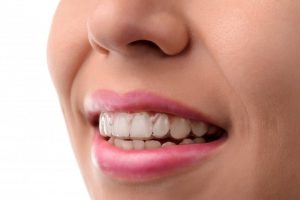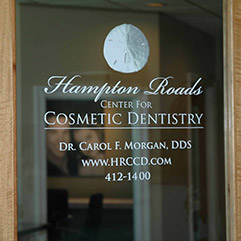Temporomandibular joint (TMJ) disorder is the painful inflammation of the mechanisms that open and close the mouth. Located on both sides of the face slightly in front of the ear lobes, the disc-like joints can become overworked and irritated. Considering that a poorly aligned bite can contribute to the inflammation and dysfunction, is there any chance of fixing TMJ with Invisalign? Continue reading to find out!
How Invisalign Works
Instead of metal brackets and wires, treatment with Invisalign clear braces involves a series of custom-designed clear-plastic trays that gradually and comfortably straighten teeth. While the final verdict on its ability to address TMJ disorder (also referred to as TMD) is still inconclusive, there are proponents of its effectiveness. This is based on the fact that, by correcting bite issues, Invisalign reduces the stress on the TMJ, which decreases inflammation and the related pain.
Another advantage of Invisalign is that it reprograms the jaw muscles to reduce teeth grinding. This further contributes to a more functional TMJ.
Expanded Treatment Options for TMD
In addition to facial pain, some patients may experience sharp headaches. This could be the result of a neuromuscular misalignment. Because the head, neck and teeth are all interrelated, TMD can cause a host of peripheral issues in other areas. To address these more complex problems, the relatively new category of neuromuscular dentistry has emerged.
It involves discovering and treating misalignment or malfunction in the muscles and nerves of the jaw. Neuromuscular dentistry is made possible through the aid of technological advancements, one of which being the Transcutaneous Electrical Neural Stimulation (TENS) unit to assess neuromuscular problems. The device delivers low-frequency electrical impulses to the muscles that control jaw movement, causing them to relax.
Here are some of the issues that can be treated:
- Earaches
- Receding gums
- Crowded or loose teeth
- Headaches or migraines
- Wear or notches at the gum line
- Numbness or tingling in the extremities
- Teeth clenching and grinding (also known as bruxism)
- Pain in the shoulders, neck, back, behind the eyes or in the teeth
What’s the Best Treatment for You?
To discover whether Invisalign in Virginia Beach or neuromuscular dentistry will be suited to treat your TMD, you’ll need to pay a local dentist a visit. You’ll undergo a thorough examination to determine the cause of your discomfort. Then, a customized treatment plan can be developed. The sooner you seek professional care, the better your chances of fully restoring the healthy and painless function of your jaw.
About the Author
Dr. Carol F. Morgan earned her dental degree from the Medical College of Virginia (MCV) School of Dentistry. Throughout a career that has spanned over 20 years, she has remained committed to further expanding her knowledge. Thus, Dr. Morgan has received advanced postgraduate training in neuromuscular dentistry from the Las Vegas Institute (LVI) for Advanced Dental Studies. She helps patients recover from TMD at Hampton Roads Center for Cosmetic Dentistry, and she can be reached for more information through her website.












